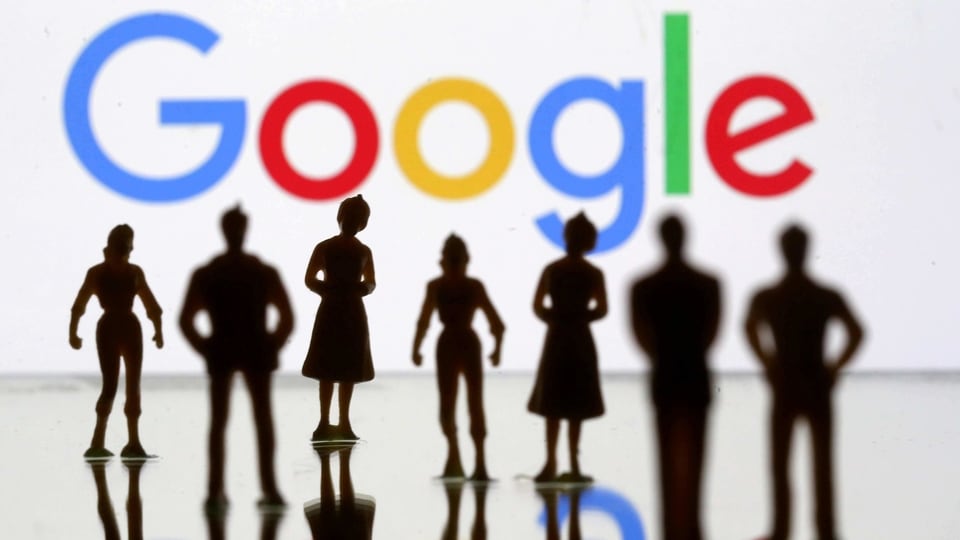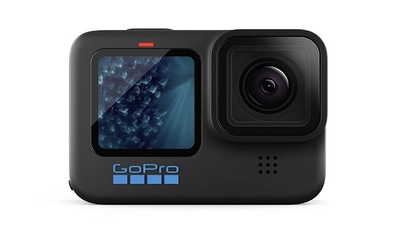Google, Oracle financed many supporters in supreme court faceoff
The finale of the high-stakes litigation, which has been grinding through the federal courts for a decade, may be remembered for another reason: as a case study in the subtle art of influencing Supreme Court justices.

Alphabet Inc.'s Google and Oracle Corp. will face off in the US Supreme Court on Wednesday in a multibillion-dollar copyright dispute with sweeping implications for technology and media companies worldwide.
But the finale of the high-stakes litigation, which has been grinding through the federal courts for a decade, may be remembered for another reason: as a case study in the subtle art of influencing Supreme Court justices.
The bare-knuckle Google v. Oracle brawl features dozens of outside groups that have written, signed or recruited others to join friend-of-the-court, or amicus curiae, briefs. Many have received funding from one of the companies for reasons unrelated to the case but didn't disclose it.
Amicus briefs are “the primary way that groups lobby judges in America and justices on the Supreme Court in particular,” said Paul Collins, who studies such briefs as a political science professor at the University of Massachusetts Amherst. “There is a tacit quid pro quo with the idea being that these groups” are expected to support their funders' positions.
It's unheard of for a company to outright lobby the Supreme Court, yet legal experts say amicus briefs, which are supposed to provide independent perspectives from third parties, can influence the outcome.
There's no evidence that anyone broke the Supreme Court's rule requiring “amici” -- which means “friends” in Latin -- to declare whether a litigant contributed money intended to fund the preparation of the brief.
But the rule has a loophole: It doesn't require brief writers or signatories to disclose general funding unconnected to the specific court case. “It's a significant loophole,” said Collins. Democratic senators on the Judiciary Committee last year proposed a measure requiring amici to disclose funding sources.
The 60 friend-of-the-court briefs in Google v. Oracle is four times the number filed in the average high court case. Among the combatants are a Hollywood lobby shop, a dark-money group with an anti-big-tech agenda and an advocacy organization for blind people.
The case pits tech companies that want freer use of programming languages against entertainment and media businesses that favor stronger copyright protections.
Also read: Google launches ‘Workspace' but what exactly is it? Here are all the details
Google is challenging an appeals court ruling that it violated Oracle's copyright when it included some Oracle-owned Java programming code in the Android phone. Sun Microsystems developed the Java language before Oracle bought the company in 2010.
On at least 14 briefs on behalf of Google, some of the authors or their employers received money from the search giant, while the writers of seven briefs supporting Oracle received funds from the software firm, according to a Bloomberg analysis. Many omitted disclosing that they'd received donations, grants, membership dues or other compensation from one of the companies.
Some of these same groups also sought to shape public perception of the case with op-eds, blog posts and media interviews.
At stake in the case are pre-written directions known as application programming interfaces, or APIs, which allow different software programs to communicate with each other, a function commonly known as interoperability. By using those shortcuts, programmers don't have to write code from scratch for every function in their software, or change it for every type of device.
Oracle says the Java APIs are available to those who want to build applications that run on computers and mobile devices. But because the Java APIs are copyrighted, Oracle claims, a license is required to use the shortcuts for a competing platform or to embed them in an electronic device.
Google argues that the software interfaces weren't eligible for copyright protection. The company also says that, even if the APIs are copyrightable, then Google's use of them would qualify as a “fair use” exception.
In 2018, the U.S. Court of Appeals for the Federal Circuit sided with Oracle, reversing earlier court rulings. In two separate rulings, the court said APIs are copyrightable and that Google's use of them failed the fair use defense. Oracle has said it's entitled to at least $8.8 billion in damages.
Earlier: Google Gets Supreme Court Hearing in Oracle Copyright Clash
Almost 250 engineers, scientists, developers, companies and nonprofits “came together to support our position,” said Jose Castaneda, a Google spokesperson. “They are often on different sides of various issues, but they joined together to argue for software interoperability, which has allowed American innovation to flourish.”
Tom Goldstein, Google's outside counsel, said in a statement that the company's unrelated donations to amici were “never a factor in our talking with them about their position on these issues.”
Oracle didn't respond to a request for comment.
The case has spawned no shortage of commentary from tech industry executives and public-policy experts about how it will reshape legal protections for software code.
Among the groups that filed supportive briefs and also received general funding from Google, according to a list of recipients it regularly discloses, are think tanks Electronic Frontier Foundation and the Center for Democracy & Technology. Trade groups such as the Computer & Communications Industry Association and the Internet Association also took unrelated Google funding and filed pro-Google amicus briefs.
All the organizations duly disclosed that Google provided no money to fund their briefs, but took different approaches in disclosing other aid from the litigant.
The Electronic Frontier Foundation and the trade groups, for example, did disclose such funding. The Center for Democracy & Technology and three co-signers -- the Institute for Intellectual Property & Social Justice, the National Consumers League and the National Federation of the Blind -- didn't.
The Center for Democracy & Technology brief argues that copyrighting APIs would block companies from making software that consumers find useful. “If you changed the names of the parties in the lawsuit to two companies that I've never heard of,” said Avery Gardiner, general counsel at the center, “we would have filed the same brief.”
The National Federation of the Blind's director of public relations, Chris Danielsen, said his group signed the brief after representatives of “one of the parties” and the Center for Democracy and Technology asked it to weigh in.
Also read: Google Pixel 2, Pixel 2 XL to reach end of life in December with last update
“We had very minimal involvement other than lending our name,” Danielsen said. He said the interests of blind people in the Google v. Oracle case was “more tangential” than in others the federation has commented on, but that it matters because blind people need access to the technology enabled by APIs.
The executive director of the National Consumers League, Sally Greenberg, said the group believed the brief's position was in the best interest of consumers and would have signed on even if it didn't receive money from Google. The Institute for Intellectual Property & Social Justice didn't respond to a request for comment.
Consumer-advocacy group Public Knowledge has been filing briefs in the case for years out of concern that a favorable ruling for Oracle would prevent small developers from entering the market, said policy counsel Meredith Rose. She said Public Knowledge had conversations with Google and others about their legal strategy and denied that Google's funds affected her group's views.
In a 2019 political activity report, Oracle disclosed the names of the think tanks and advocacy groups it had recently financed, including those that later weighed in on the high court case, such as the Copyright Alliance, the Hudson Institute, the American Conservative Union and the Internet Accountability Project. None disclosed receiving unrelated Oracle funds.
The Internet Accountability Project, a dark-money group -- one that declines to disclose its financial backers -- often criticizes Google and other tech companies over their privacy practices and market dominance. The self-described conservative group's staff also wrote opinion pieces and participated in media interviews praising Oracle's position.
Internet Accountability Project President Mike Davis said in a statement the group was proud to file a brief “explaining the legal history behind our nation's copyright laws -- and how Google blatantly violated them when Google ripped off Oracle's computer code to start Android.”
Copyright Alliance Chief Executive Officer Keith Kupferschmid said in a statement that the group weighed in on the case at the direction of its members.
American Conservative Union Executive Director Daniel Schneider said in an interview “it never even occurred” to him to disclose the funding that was unrelated to the brief because the organization has supported strong intellectual property rights for years.
Some groups that supported Oracle weren't funded by it, but represent media companies that have long criticized Google for making money off their content without paying for it. The Motion Picture Association, Recording Industry Association of America, News Media Alliance and the Association of American Publishers have joined Oracle's cause to protect copyright standards that content creators rely on.
The input on Google v. Oracle is unusually large but not an anomaly. During the 2017-2018 term, 890 amicus briefs were filed on 63 cases the court reviewed. That's about 14 briefs per case, according to an analysis by the Arnold & Porter law firm.
Academic studies show such briefs are more likely to sway the justices when they are deciding whether to review a case than when they are mulling a ruling, said Collins, the political science professor.
“At the decision-making stage, research shows, the justices do adopt arguments verbatim from amicus briefs,” Collins said. But the side that has more amicus briefs “tends to have a slight advantage in the Supreme Court,” he added. “Probably most significantly, certain briefs, particularly those filed by really well-known lawyers, have a good amount of influence.”
If numbers are a guide, then Oracle might have a leg-up, with 32 amicus briefs supporting its position against 26 for Google.
The Trump administration, like the Obama administration before it, is also taking Oracle's side. A lawyer from the U.S. solicitor general's office will speak on the company's behalf in Wednesday's oral argument.
The case is Google v. Oracle America, 18-956.
Written by Naomi Nix and Joe Light.
Catch all the Latest Tech News, Mobile News, Laptop News, Gaming news, Wearables News , How To News, also keep up with us on Whatsapp channel,Twitter, Facebook, Google News, and Instagram. For our latest videos, subscribe to our YouTube channel.

























